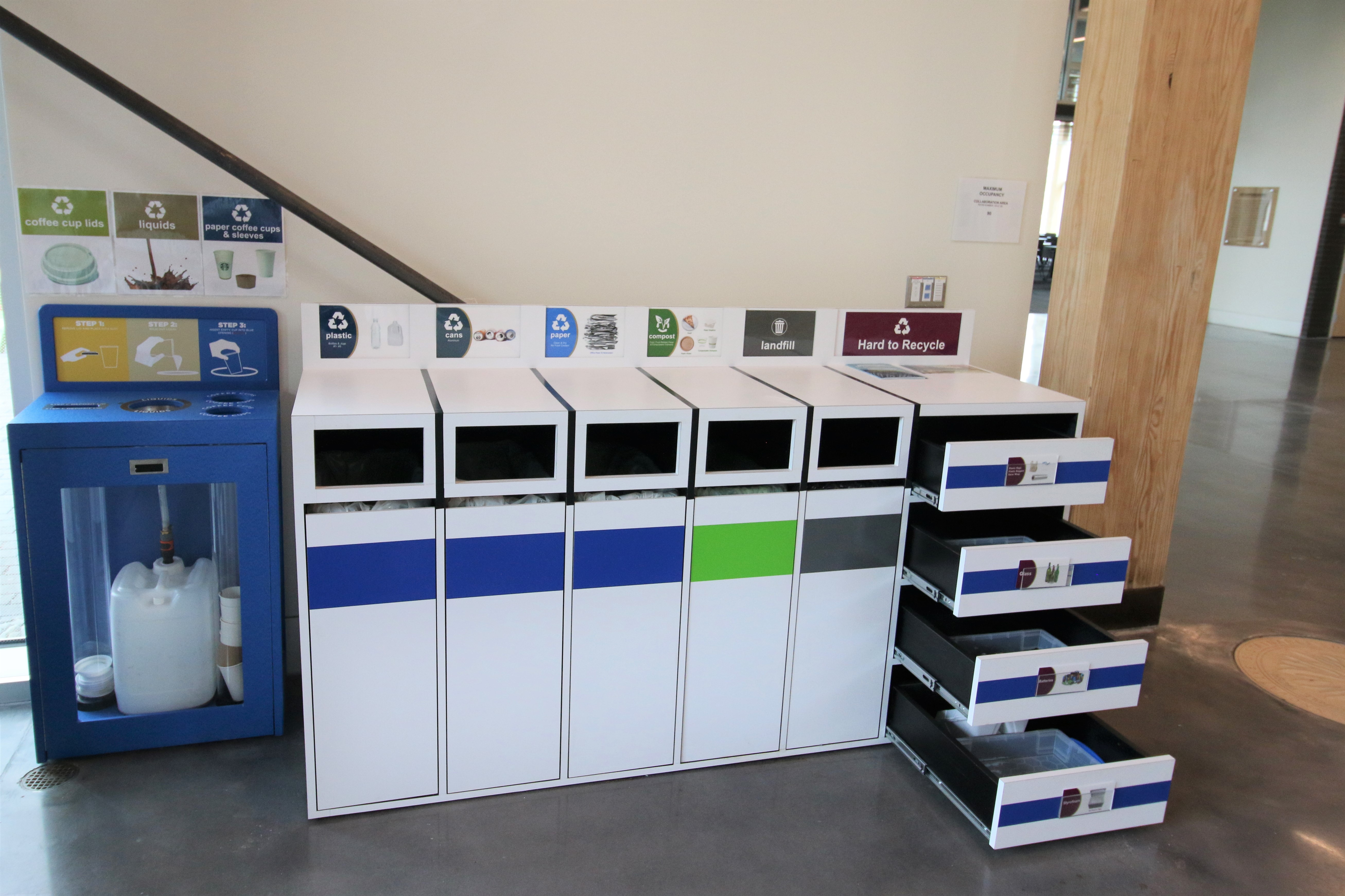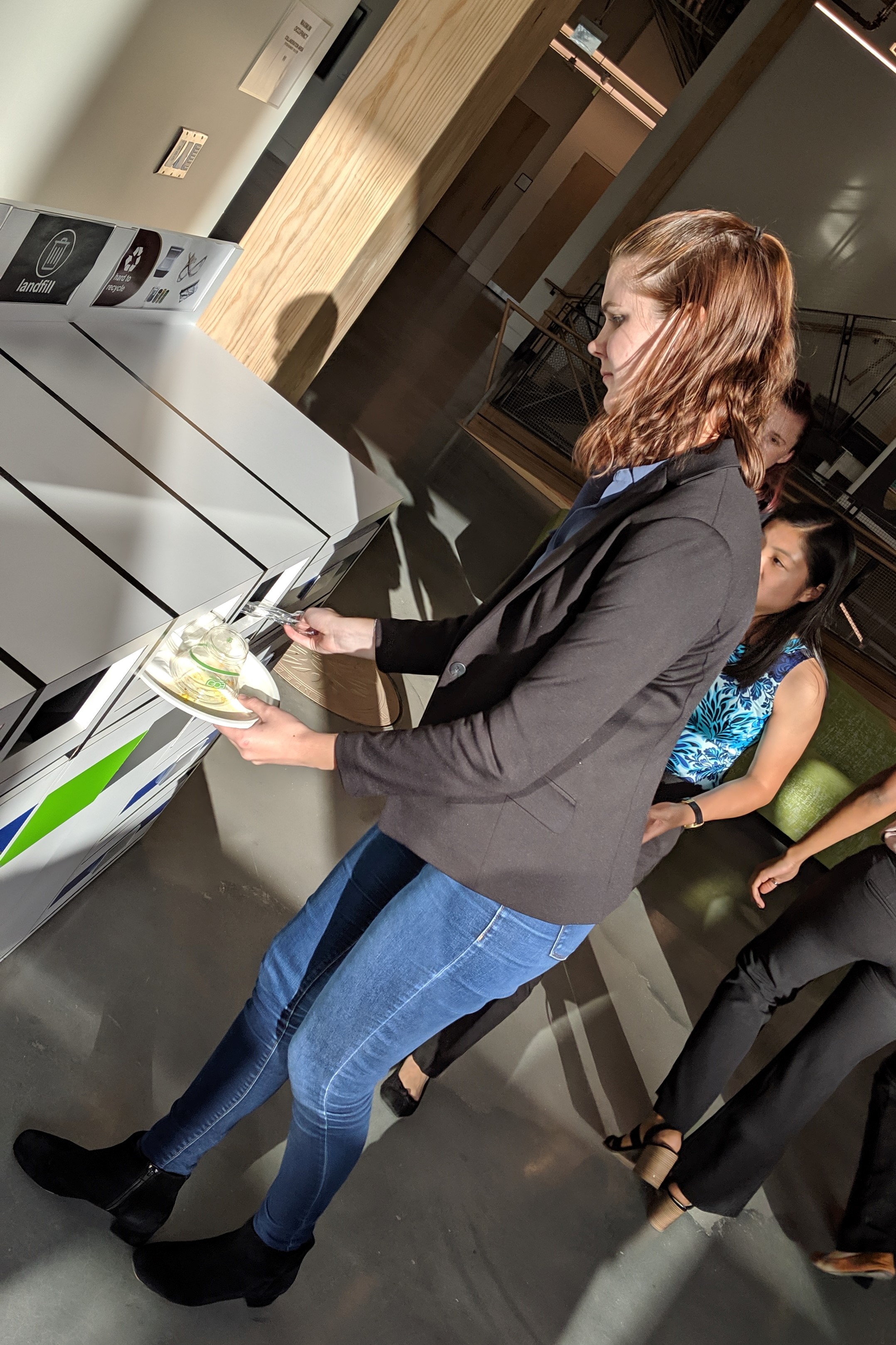Petal: Materials
Imperative 14: Net Positive Waste
Materials Management
While the Living Building Challenge requirement to be net positive waste only applies to the construction process, this Imperative does require that The Kendeda Building provide dedicated infrastructure for the collection of recyclables and compostable food scraps. Georgia Teach already had a robust materials management plan for campus and The Kendeda Building is providing us with a platform to take materials management to the next level.
Reduction of waste starts prior to people entering any building. Therefore, the building's Guidelines webpage provides guidance on how to reduce waste. Catered events cannot use styrofoam or single use plastics and are requested to use reusable dishware, cups, utensils, trays, platters, and other serving ware whenever possible. Any disposable packaging and serving ware (e.g., trays, plates, platters, utensils, and cups) must be BPI-Certified compostable products.
There are three materials management stations indoors and two outdoors on the porch. The indoor materials management stations were designed by Georgia Tech students. All of the stations have bins for landfill, plastic, paper, cans, and compost. Two have drawers for hard-to-recycle products such as plastic film, batteries, and glass. In addition, there is one coffee recycling station that accepts lids, liquids, and single-use coffee cups.
CompostNow, a nonprofit compost collection service, collects the building's compostable materials. The hard-to-recycle materials are periodically transported to the Center for Hard to Recycle Materials, a local nonprofit. These two nonprofits provide measurement of material diverted. Georgia Tech measures the other categories to understand total waste diversion. Georgia Tech also conducts periodic audits to determine the level of contamination with the goal of continuously improving the materials diversion process.

